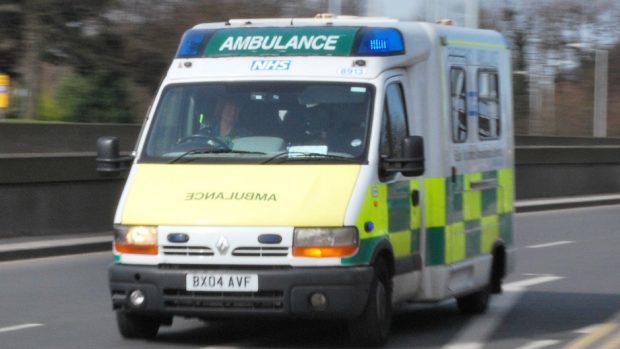Controversial new plans which would force paramedics to learn Gaelic have been slammed by critics.
The proposal has been put forward as part of the Scottish Government’s drive to revive the traditional language.
The Scottish Ambulance Service (SAS) would also have to create a new bilingual logo which would be displayed on uniforms and vehicles.
Opponents of the scheme have accused Holyrood of playing “political games” with the emergency services – and branded it a “waste of money”.
Alex Johnstone, MSP for the north-east, said: “This is the Scottish Government’s obsession to push Gaelic at all costs rearing its head again.
“The SNP should be supporting staff to improve response times and cut down on sickness absence, not playing political games with paramedics.”
Under Scottish Government legislation, all public bodies and organisations across the country have to come up with similar plans to promote the language.
The latest proposal is contained in a 30-page document which outlines a range of measures which could be put into place over the next four years.
In the report, Pauline Howie, SAS chief executive, said: “The Scottish Ambulance Service is committed to the aspirations and objectives included in the National Gaelic Language Plan and the Gaelic Language (Scotland) Act 2005.
“Gaelic is a precious part of our communities, culture and heritage.”
The service has not said how much the scheme would cost, but is now asking for feedback on the draft plan.
In October, Police Scotland unveiled similar plans which would mean re-branding the force on officers’ uniforms and vehicles.
Readers of the Press and Journal overwhelmingly rejected the proposal in an online poll shortly after it was announced.
Taxpayer Scotland has also raised questions about the financial cost the public might have to bear.
Director Eben Wilson said: “The costs of these initiatives are never made clear and we wonder how many people would vote for it if asked.
“This is no time for ‘nice to have’ politics.”
The Scottish Government has defended the plans.
A spokesman said: “Efforts to support a future for the Gaelic Language have enjoyed cross-party support.”
